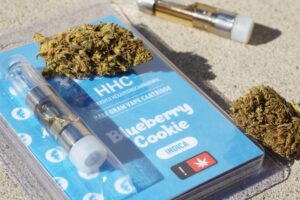Start Your Marijuana Business: Here Is How You Can Do That

Marijuana use is presently permitted in 33 states and the District of Columbia. As a result, a growing number of commercial property owners will have to decide whether to lease space to a marijuana business that “touches the plant,” also known as a marijuana-related business in this article (MRB). Do you agree, or do you disagree? This Practice Point will go over some of the factors to consider while making that decision, as well as issues to address in an MRB lease.
To begin, it’s crucial to understand that the use, possession, sale, or processing of marijuana is prohibited under federal law. The Controlled Substances Act, 21 USC 801 et seq., classifies marijuana as a Schedule 1 substance. Another federal statute, 21 USC 856, makes it illegal to intentionally open, lease, rent, utilize, or maintain any place for the purpose of manufacturing, distributing, or using any restricted substance. Are you still with me? Hundreds of property owners lease or operate property for the growing, processing, and buy weed online, despite federal law.
If a property owner is willing to work with an MRB renter, a determining factor is whether the property has a mortgage secured by bank or other institutional funding. If there is, the loan agreement will almost probably include a paragraph that states, “borrower, property, and use will comply with all applicable laws, rules, and regulations.” That should put an end to the agreement, because an MRB is illegal under federal law, and few, if any, banks will allow a borrower to lease space to an MRB that is illegal under federal law. This also means that if a property owner rents to an MRB, the property will be difficult to finance conventionally as long as the lease is in place.
There are still various concerns to overcome if a property owner does not have a mortgage on the property but still wants to lease to an MRB.
Rent payment and banking Is the MRB planning on paying rent in cash? If this is the case, the property owner’s bank may have concerns. In fact, banks have been known to “fire” customers with any ties to marijuana firms, regardless of whether or not the individuals are involved in the industry.
 Computation of Rent. Will the rent be fixed or percentage based, as with many retail rents? If the latter is true, the landlord will be regarded “in the business,” putting him or her at greater danger of being “fired” by their bank or facing increased federal scrutiny.
Computation of Rent. Will the rent be fixed or percentage based, as with many retail rents? If the latter is true, the landlord will be regarded “in the business,” putting him or her at greater danger of being “fired” by their bank or facing increased federal scrutiny.
Contingency in Licensing This is a matter of state law. Is the prospective tenant’s business operating under the proper state or local license? In many areas, a marijuana business license applicant must first acquire a location before applying. A prospective renter in this situation will want to sign a lease that is conditional on receiving the license. To determine how long a contingency should last, an owner should be conversant with local and state legislation.
Zoning. Will the MRB’s use of the property be in accordance with zoning laws? Because of the sensitivity of the use, local governments frequently place severe restrictions on where dispensaries and other MRBs can be established. An owner must ensure that his or her property falls within a zoning classification that permits MRBs.
Inspection privileges A landlord’s right to inspect the premises at any time is usually included in a lease. A landlord’s access rights must be compliant with local cannabis regulations, which is especially crucial in the event of an MRB tenant. Third-party access limitations may be imposed by local law that are not typical of most commercial usage.
Insurance is available. Before signing a lease, both the property owner and the MRB tenant must consult with their insurance brokers to ensure that sufficient insurance is provided in accordance with the lease and that the insurance companies are aware that the insurance is for a marijuana-related business. While insurance for the marijuana industry is becoming more widely available, an insurance company may be quick to deny a claim if the claim is based on an illicit use that is not covered by the insurance policy.
Subleasing and Lease Assignment Many landlords will allow a tenant to sublease or assign their lease, but only with the landlord’s consent, “which consent will not be withheld unreasonably.” What does it mean to not withhold permission unreasonably in the context of an MRB?
Because the rules are still being created in this area, if a property owner signs a lease with an MRB and agrees to enable subleasing or assignment, it should be extremely precise about the conditions under which it will do so.
These are only a few of the difficulties that both landlords and tenants must address in an MRB agreement. To establish a successful long-term relationship, both parties must be represented by real estate counsel who are well-versed in local, state, and federal marijuana regulations.






